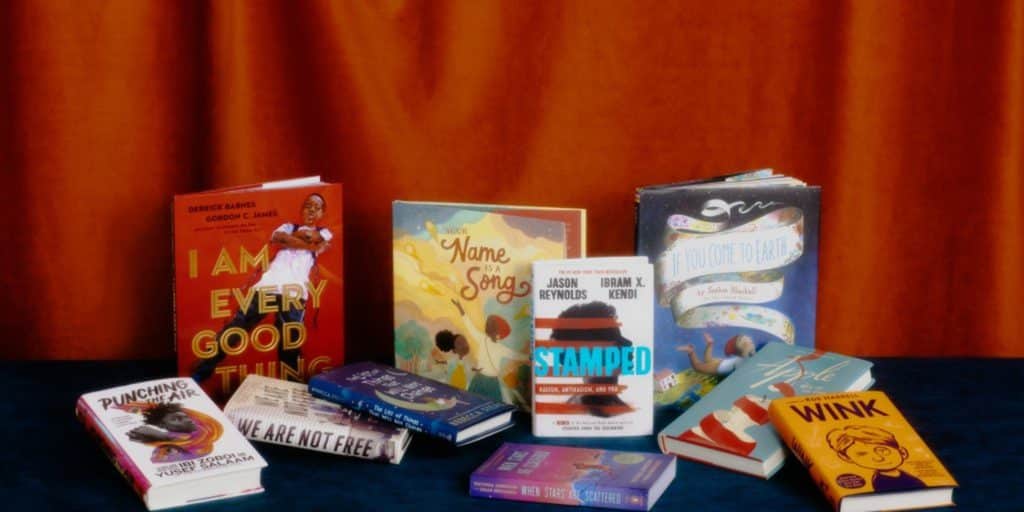|
Getting your Trinity Audio player ready...
|
The occasions of this current year a worldwide pandemic, a retribution with bigoted savagery and persecution, a wild official political race have contacted everybody’s lives, youngsters and teens notwithstanding. Furthermore, there are not many assets more remarkable than books to grant exercises on the most proficient method to sort out an isolated and regularly perilous world. The best youthful grown-up, center evaluation and youngsters’ books distributed for the current year recount accounts of settling strife, discovering solidarity and beating affliction.
At the point when Stars Are Scattered
Victoria Jamieson and Omar Mohamed
Eleven-year-old Omar Mohamed lives in a Kenyan evacuee camp with his more youthful sibling Hassan, who has unique requirements. At the point when the book starts, they’ve been there for a very long time since the time their dad was killed in Somalia’s polite war and the young men were isolated from their mom while escaping the viciousness and it’s an additional seven years before they’re ready to leave and make lives for themselves outside the camp. To make the realistic journal, Mohamed, presently a U.S. resident, imparted his story to Victoria Jamieson, the writer and artist behind the Newbery Honor-winning book Roller Girl. A profound feeling of misfortune saturates each page, yet When Stars Are Scattered, a finalist for the National Book Award, is likewise interspersed with a lot of happiness.
Stepped:: Racism, Antiracism, and You
Jason Reynolds and Ibram X. Kendi
In this “remix” of Ibram X. Kendi’s National Book Award-winning Stamped all along: The Definitive History of Racist Ideas in America, star YA writer Jason Reynolds assists break with bringing down the historical backdrop of prejudice for youthful perusers. Like the first, the book follows the starting points of against Black thoughts and viciousness. In any case, the writers clarify that Stamped isn’t absolutely a set of experiences book on the grounds that any book about bigotry is definitely attached to the current day. Their coordinated effort is ideal for youthful perusers: it’s intensive and instructive (even grown-ups will discover exercises here), yet its tone is new and conversational.
We Are Not Free
Traci Chee
In the repercussions of the assault on Pearl Harbor, 14 second-age Japanese-American youngsters figure out how to depend on one another as their lives are overturned. The gathering grew up together in San Francisco, however now they and their families are being constrained out of their homes and into imprisonment camps. Writer Traci Chee catches the shock, disarray and fears these characters insight in her novel, which was a finalist for the National Book Award. Every section of We Are Not Free follows one of the 14 youngsters as they explore bias and disengagement. Chee encapsulates these points of view particularly one character’s excursion is composed totally in refrain to make a moving representation of youngsters meeting up even with squashing misfortune.
Apple:: Skin to the Core
Eric Gansworth
In his blending journal in-refrain, artist Eric Gansworth clarifies that the expression “apple” is a slur in Native people group. “Red outwardly, white within, perpetually bolted away from the two universes, isolated by the most slender layer,” he composes. In Apple: Skin to the Core, Gansworth persistently gets back to the term, attempting to recover it as he reveals his family ancestry and outlines an unpredictable trap of converging personalities. He covers everything from his granddad’s frightening involvement with an administration live-in school to his own mind boggling adolescence as a selected Onondaga raised at the Tuscarora Nation. All through, Gansworth focuses his crude and moving individual story in a bigger conversation about local area, character and language.
Punching the Air
Ibi Zoboi and Yusef Salaam
The incredible novel-in-refrain from creator Ibi Zoboi and jail change extremist Yusef Salaam follows the excursion of a 16-year-old who is imprisoned for a wrongdoing he didn’t perpetrate. In jail, Amal Shahid, a growing artist and craftsman, should face his hopelessness and frustrations with the one-sided criminal equity framework in the U.S. Upon the arrival of his conviction, Amal clarifies that he’s remembered his detainee number, his wrongdoing and his time. Around the same time, he’s failed to remember “my school ID number/my main three universities/my class plan.” His musings, orchestrated in free stanza, never appear to be separated. Also, they finish in a moving assessment of being Black in America.

